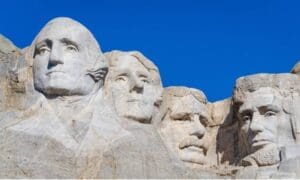Recently, CNN’s Money.com posted an article bearing the title, “U.S. Millionaires Population Expanded by 8 Percent in 2010.” According to the article, there are now approximately 8.4 million millionaires in the United States, and last year’s increase was due primarily to rising stock prices, following a 27-percent decline in the number of millionaires in 2008 due to the stock market’s plunge that year.
What is one to make of this information?
There were only a few thousand millionaires in the United States in 1900. One would expect there to be many more today with the enormous economic growth of the last 110 years. On the one hand, there would be even more millionaires today had progressive taxation not prevented millions of Americans from accumulating more wealth. On the other hand, there would be considerably fewer millionaires were it not for the effects of inflation.
Adjusting for the increase in the Consumer Price Index, it would take a net worth of about $25 million today to be the economic equivalent of a millionaire in 1900. Clearly, being a millionaire today does not support the lifestyle that it did a century ago.
Leaving out the market value of one’s primary residence, the number of American millionaires today would fall by more than half. Many millionaires are land-rich or house-rich, but middle class in terms of liquid assets.
As the article reported, many Americans rise into and fall out of millionaire status as the stock market fluctuates. Their millionaire status is rather tenuous — “here today, gone tomorrow” — subject to the capricious gyrations of financial markets. Easy come, easy go, that paper wealth.
The fact, though, that last year’s increase of millionaires is attributable to stock-market gains is troublesome. Federal Reserve Chairman Ben Bernanke stated that today’s higher stock prices show that his QE2 policy of inflating the monetary base has been successful. This raises questions of legitimacy, for it was never the Fed’s legislative mandate to pump up stock prices, as well as questions of fairness—if Bernanke is using his power to enrich stock-market investors.
I am concerned that these facts will stir up resentment at millionaires in general. There are already too many Americans who have a negative, even hostile, attitude toward the rich.
As a free-market economist who believes in America as the Land of Opportunity, I hope our country continues to prosper and produce even more millionaires. Indeed, these two phenomena go hand in hand, rising together interdependently. However, an absolutely crucial distinction must be drawn here.
From a true free-market, capitalist perspective, there is a legitimate way to become a millionaire (the economic) and an illegitimate way (the political). The economic way is the old-fashioned way: One earns his or her fortune as a reward for sharing one’s talents and products with others, by excelling in service to one’s fellow man in an open, free, competitive marketplace.
The “soak-the-rich” ideologues think these achievers deserve to be subjected to punitive taxation for having dared to earn so much. Is it really a valid theory of justice to punish success in benefiting others? Is rendering service to one’s fellow man somehow objectionable or morally suspect? I think not.
The political approach is an entirely different matter. This is the far-too-common practice that economists call “rent-seeking” behavior: individuals and corporations using their political connections to rig the market to enrich themselves—things like bailouts for Wall Street firms, giant subsidies, federal regulations that require use of a particular product that a politically-connected firm just happens to make, etc.
Rent-seekers don’t profit by serving their fellow man through voluntary exchange, but by milking the taxpayer through manipulating the political process. Rent-seekers prosper from political connections and privileges that the rest of us don’t have. This is patently unfair, and most definitely is not free-market capitalism, contrary to the false assertions of the anti-capitalist left.
Indeed, free-market economists going back to Adam Smith have warned us about businessmen exploiting the political system to enrich themselves at everyman’s expense.
Let us respect those who earn their millions in free, honest commerce; let us end the socialistic practice of government determining economic winners by channeling favors and funds to favored clients. The former is the fulfillment of the American Dream; the latter is its repudiation.
[Dr. Mark W. Hendrickson is an adjunct faculty member, economist, and fellow for economic and social policy with The Center for Vision & Values (www.VisionAndValues.org) at Grove City (Penn.) College.]











Leave a Comment
You must be logged in to post a comment.